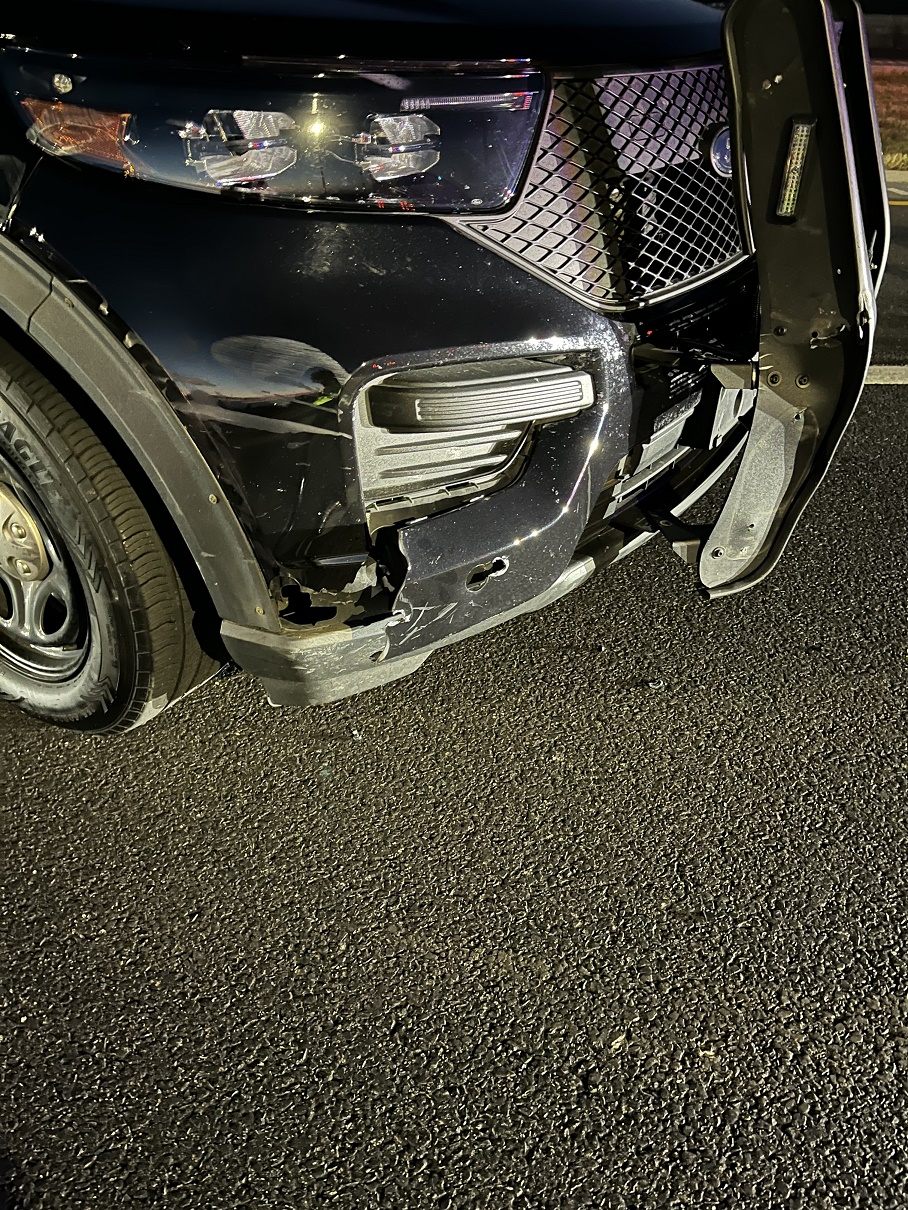ILLINOIS STATE POLICE SQUAD CAR STRUCK ON I-57
ISP Experiences 12th Move Over Law-Related Crash of 2025
October 30, 2025

FOR IMMEDIATE RELEASE
October 30, 2025
ARCOLA – An Illinois State Police (ISP) squad car was hit this morning on I-57 in Douglas County as the Trooper was conducting traffic control for a previous crash.
On October 30, 2025, at approximately 5:50 a.m., an ISP Trooper was parked across the northbound lanes of I-57 conducting traffic control for a previous crash involving a commercial motor vehicle. The Trooper had activated the emergency lights in the squad car, directing traffic to exit at milepost 203 onto IL 133. A Chevrolet Trailblazer failed to move over, failed to exit, and struck the front passenger side of the Trooper’s squad car. The Trooper was outside of the squad car at the time of the crash and reported no injuries. The driver of the Chevrolet, 68-year-old Donald E. Morecraft of Robinson, IL, was charged with Failure to Reduce Speed to Avoid an Accident and a Scott’s Law/Move Over Law violation.
In 2025, ISP has now suffered 12 Move Over Law-related crashes. In 2024, ISP suffered 27 Move Over Law-related crashes with 12 Troopers injured and one death. In 2023, ISP had 21 Move Over Law-related crashes with seven Troopers injured. ISP reminds the public the Move Over Law, also known as “Scott’s Law” in Illinois, requires all drivers to move over when approaching an emergency vehicle or any vehicle with its emergency or hazard lights activated.
A person who violates the Move Over Law faces a fine of no less than $250 and no more than $10,000 for a first offense. If the violation results in injury to another person, the violator’s driver’s license will be suspended for a mandatory period of anywhere between six months and two years. Additional information about ISP related crashes can be found at the following link: https://isp.maps.arcgis.com/apps/dashboards/340d57cd956c453da2de25af804c268d.

The charges are not evidence against the defendant, and the defendant is presumed innocent until proven guilty beyond a reasonable doubt in a court of law.
###